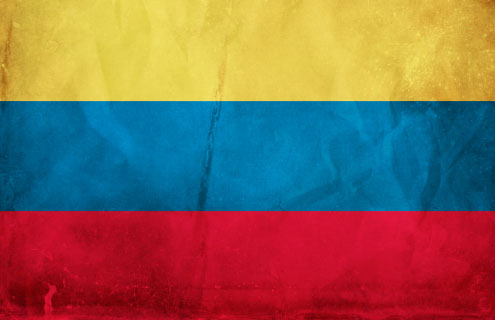It is important to acknowledge Colombia’s development of class actions, says David Gilbert of Goal Group
The growing globalisation of securities class actions means that, although the US is still the most developed and dominant centre, other legislatures around the globe are rapidly catching up. The root of this international diversification seems to have come about as a result of a combination of constraints on jurisdiction definitions in US federal courts, along with a growing desire to develop domestic class actions procedures in many countries around the globe.
In Colombia, Article 88 of the Constitution established that class actions are compensation mechanisms for damages caused to a group of individuals as a result of a transgression. The Colombian legal system has justified the creation and regulation of class action laws on the materialisation of the principle of procedural economy. The principle is essential to class actions since, with the same procedure, a group of people affected by a uniform cause can claim their rights.
In 1998, the Colombia Congress went on to pass Law 472, further expanding on the provision contained in Article 88 of the 1991 Constitution, which outlined the importance of protecting collective and public interests as well as certain individual rights from exposure to different kinds of harm.
Law 472 created two different types of actions. First, a popular action was established, which is a form of injunctive or declaratory relief for violations to the public interest. These popular actions can be brought by any citizen or group of citizens without needing to demonstrate any direct harm and—unlike all other judicial remedies—without legal representation.
The second type of action included in Law 472 is a group action, which is the most similar to the American class action in the way that it is used to enable large groups of individuals to aggregate their claims when they arise from facts or law common to the group, class or category. Contrary to what occurs in the case of popular actions, group actions arise from personal damages occurred as a result of the violation of individual rights, and their objective is to seek compensation for those damages.
Ultimately, it is important to acknowledge Colombia’s development of class actions legislation and courts’ appreciation of the potential benefits of this kind of regulation. As a result of this, it is vital that Colombia investors remain vigilant about their ability to participate in class actions in Colombia and other jurisdictions globally.
With Colombia investors now investing $13 billion in foreign equity shares, nearly doubled from $7 billion at the end of 2011 and $4 billion in 2009, according to the International Monetary Fund, it is clear that there is a duty to monitor and participate in securities class action and collective redress opportunities in various countries around the world. Investment in the US from Colombian investors was $9 billion, nearly $2 billion in Luxembourg and $1.5 billion in Chile.
Goal Group’s analysis of its class actions knowledge base predicts that by 2020 securities class action, group and collective redress settlements outside of the US will reach $8.3 billion annually. The analysis also predicts that an estimated $2.02 billion of global investors’ rightful returns will be left unclaimed each year by non-participation.
It is clear that there are still significant amounts being left unclaimed each year due to non-participation in class actions. It is the responsibility of fund managers and custodians to remain vigilant and monitor international opportunities to participate in securities class actions in order to reclaim losses. There are also now a number of specialist services available that automate the process of class action participation. This significantly minimises the complexity and cost of recovery, meaning that there becomes no real or viable excuse for non-participation from fund managers and institutional investors.
As securities class actions globalise, all investors and trustees must remain vigilant and monitor both home country and global opportunities to participate in class actions to reclaim rightful returns. All parties should acknowledge the cross-border opportunities presented by legislatures such as Colombia, to reclaim damages to which they are legally entitled.



